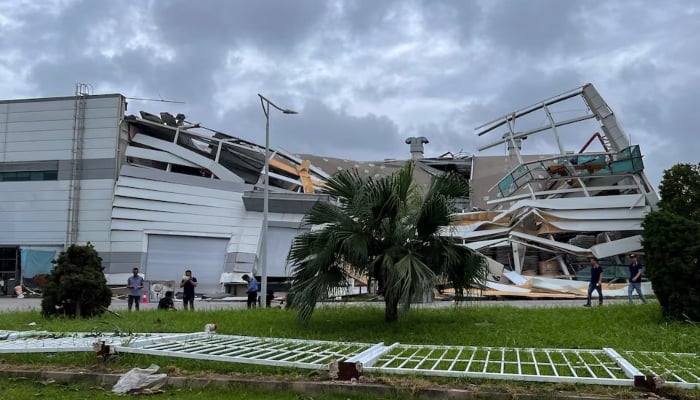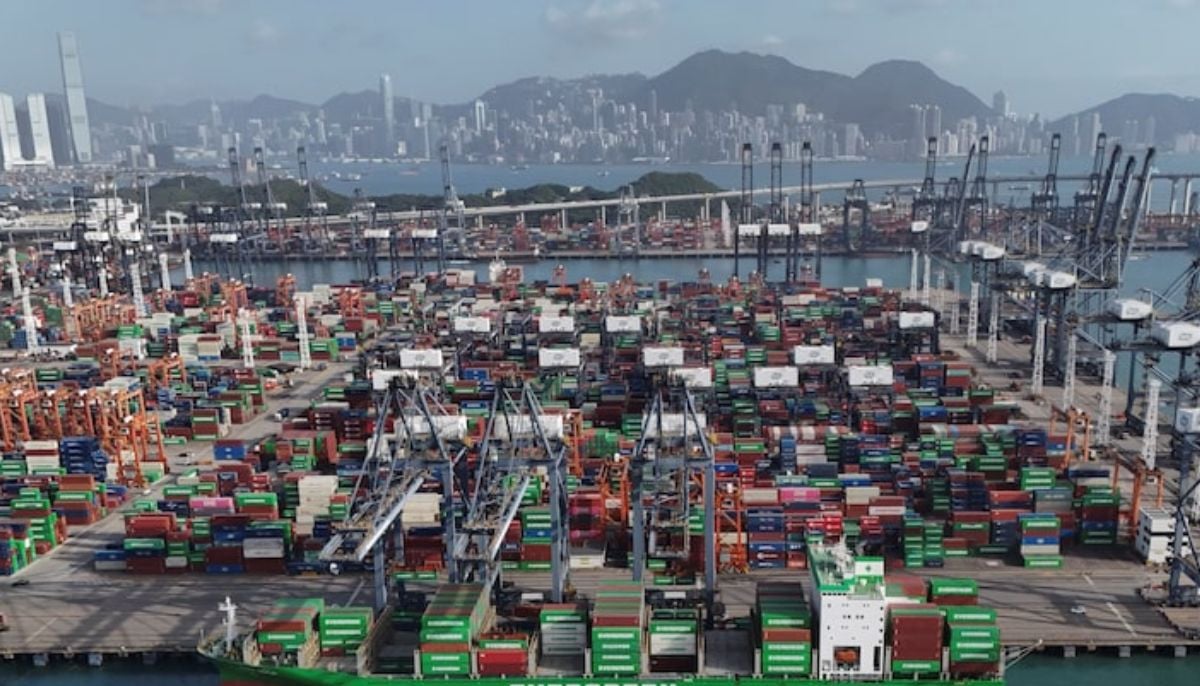Typhoon Yagi devastates Southeast Asia: Death toll surpasses 200
Yagi has brought massive downpour that has inundated large parts of Vietnam, Laos, Thailand and Myanmar
As powerful Typhoon Yagi swept through Southeast Asia, millions of people throughout the region on Thursday faced power cuts as scores of houses got flooded and infrastructure wrecked, surging the death toll past 200.
Vietnam has been hit the worst with the fatalities climbing to 197, while nine deaths have been confirmed in Thailand, of which one district is suffering its worst floods in 80 years.
Yagi pounded Vietnam at the weekend, bringing a massive downpour of rain that has inundated large parts of northern Vietnam, Laos, Thailand and Myanmar, causing fatal landslides and extensive river floods.
One farmer told AFP his entire 1,800 square metre peach blossom plantation was submerged, destroying all 400 of his trees.
"It will be so hard for me to recover from this loss — I think I will lose up to $40,000 this season," said the farmer, who gave his name only as Tu.
"I really don't know what to do now, I'm just waiting for the water to recede."
The United Nations children’s agency (Unicef) said the typhoon had damaged more than 140,000 homes across 26 provinces in Vietnam.
Unicef said it has provided water for homes, health centres and schools in the worst-affected areas and would send medical and sanitation supplies to the Vietnamese government in the coming days.
Thousands evacuate homes
The high waters have devastated more than 250,000 hectares of crops and huge numbers of livestock, Vietnam's agriculture ministry said, with farmland around Hanoi hit hard.
Commuters in parts of the Vietnamese capital trudged to work through shin-deep brown floodwaters, though officials said river levels in the city are slowly falling after hitting a 20-year high on Wednesday.
Thousands have been forced to evacuate their homes, while others are struggling with power cuts, and in one badly hit district on the outskirts of Hanoi, more than 15,000 people have been affected by the floods.
Vietnamese state media said a landslide in mountainous Lao Cai province killed seven people with 11 missing.
The incident happened on Tuesday but details have only just got through because communication with the area was cut off, officials told state media.
This comes in addition to a separate landslide in the same province that annihilated an entire village of 37 houses, killing at least 42 people with 53 still unaccounted for.
Fifteen bodies have been recovered in Cao Bang province after a landslide on Monday pushed a bus, along with several cars and motorbikes, into a stream, state media said Thursday.
Flood warning
The Mekong River Commission, the international body overseeing the crucial waterway, issued a flood warning on Thursday for the historic Laotian city of Luang Prabang.
The Mekong is expected to hit flood levels Thursday in Luang Prabang, a UNESCO world heritage site, the commission said in a bulletin.
In Thailand the death toll has risen to nine, the Department of Disaster Prevention and Mitigation said, including six killed in landslides in Chiang Mai province.
All flights have been suspended to the airport in Chiang Rai, some 145 kilometres (90 miles) northeast of Chiang Mai, aviation authorities said.
Further north, Mae Sai district on the border with Myanmar is suffering its worst floods in 80 years, Suttipong Juljarern, a senior interior ministry official said in a statement.
Prime Minister Paetongtarn Shinawatra has ordered supplies to be sent to the affected areas, and mobilised the military to send boats, helicopters and other transport to help relief efforts.
Buddhist temples, along with hotels and resorts, have opened their doors to accommodate almost 1,000 people flooded out of their homes, the government said.
Flooding in Myanmar is most severe around the junta's sprawling low-lying capital Naypyidaw, while the town of Taungoo is also threatened by rising river levels.
The Global New Light of Myanmar, the state-run newspaper, said train services on the main line between Yangon and Mandalay were suspended because some sections were flooded.
Heavy monsoon rains lash Southeast Asia every year, but human-made climate change is causing more intense weather patterns that can make destructive floods more likely.
Climate change is causing typhoons to form closer to the coast, intensify faster and stay longer over land, according to a study published in July.
-
Sarah Pidgeon explains key to portraying Carolyn Bessette Kennedy
-
Inside Nicole 'Snooki' Polizzi's 'private' marriage with husband Jionni LaValle amid health scare
-
Germany’s ruling coalition backs social media ban for children under 14
-
Quinton Aaron reveals why he does not want to speak to wife Margarita ever again
-
Why Mikaela Shiffrin celebrated Olympic Gold with Taylor Swift song?
-
Political tensions steal spotlight at Berlin Film Festival closing ceremony
-
Hong Kong touts stability,unique trade advantages as Trump’s global tariff sparks market volatility
-
Friedrich Merz heads to China for high stakes talks in an effort to reset strained trade relations












